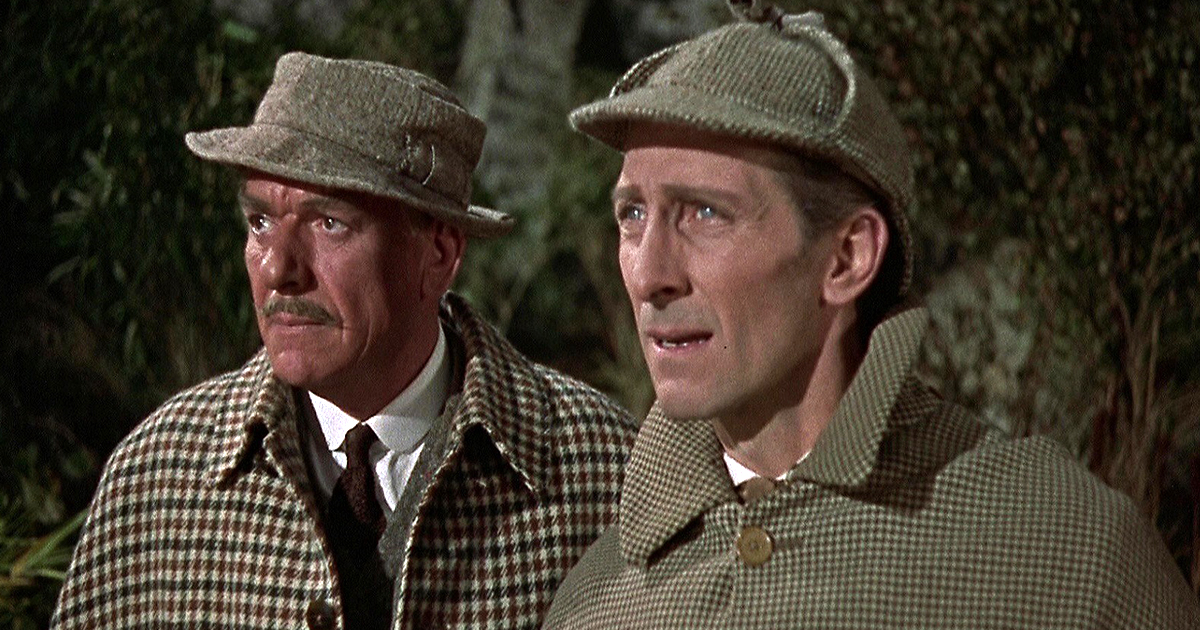[7]
In these cynical, recklessly progressive, polarized, impersonal times, I find comfort in many films from Britain’s Hammer Studios from the ’50s and ’60s. Most of these films are pure genre entertainment, devoid of divisive subtext or dreaded political messaging, ripe with escapist atmosphere, and most importantly — they feature polite, civilized characters who attack their problems head-on, with courage and dignity. They are not great films — many of them are too much alike, recycling cast and even sets to keep their budgets super low. Hammer was not into ambitious filmmaking, but they were masters of making the most out of very little and taking pride in their craft. Like dinosaur movies or Star Trek movies, Hammer Horror movies simply hit the spot, whisking me away to simpler, happier, more congenial times.
One of Hammer’s finest productions is 1959’s The Hound of the Baskervilles, one of Sir Arthur Conan Doyle’s most popular installments in the adventures of Sherlock Holmes and his intrepid partner Dr. Watson. Set in the misty moors of Southern England, the film calls Holmes (Peter Cushing) and Watson (Andre Morell) to investigate the death of a nobleman at the hands (or paws?) of an alleged, legendary ‘hound from hell’. While Watson protects the deceased’s next-of-kin (Christopher Lee) from the legend, Holmes sets out to disprove the myth and reveal the truth behind it. Who is trying to wipe out the Baskerville lineage and why? Or is there really a hell hound on the loose?
The pairing of Cushing and Lee is always a special treat. Cushing is quirky and charismatic as Holmes, a role he would play many more times in his career. The supporting players are equally up to the task. Andre Morell captures the avuncular aloofness of Dr. Watson very nicely, and Miles Malleson is a hoot as the local Bishop, an eccentric entomologist who often gets lost in his own thoughts. As with most Hammer films, the sets and wardrobe are remarkably sumptuous, evoking a terrifically spooky atmosphere and a compelling gothic vibe that is very hard to find outside this era of filmmaking, or this unique studio’s purview.
With Marla Landi, Francis De Wolff, and Ewen Solon. Directed by Terence Fisher, who would contribute mightily to the studio’s overall style and identity, overseeing 29 films for Hammer over the course of his career.

